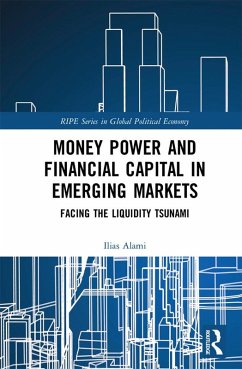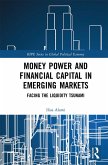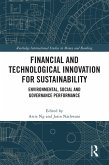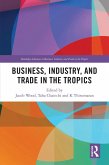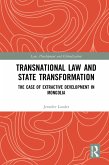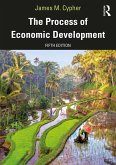Ilias Alami
Money Power and Financial Capital in Emerging Markets (eBook, PDF)
Facing the Liquidity Tsunami
41,95 €
41,95 €
inkl. MwSt.
Sofort per Download lieferbar

21 °P sammeln
41,95 €
Als Download kaufen

41,95 €
inkl. MwSt.
Sofort per Download lieferbar

21 °P sammeln
Jetzt verschenken
Alle Infos zum eBook verschenken
41,95 €
inkl. MwSt.
Sofort per Download lieferbar
Alle Infos zum eBook verschenken

21 °P sammeln
Ilias Alami
Money Power and Financial Capital in Emerging Markets (eBook, PDF)
Facing the Liquidity Tsunami
- Format: PDF
- Merkliste
- Auf die Merkliste
- Bewerten Bewerten
- Teilen
- Produkt teilen
- Produkterinnerung
- Produkterinnerung

Bitte loggen Sie sich zunächst in Ihr Kundenkonto ein oder registrieren Sie sich bei
bücher.de, um das eBook-Abo tolino select nutzen zu können.
Hier können Sie sich einloggen
Hier können Sie sich einloggen
Sie sind bereits eingeloggt. Klicken Sie auf 2. tolino select Abo, um fortzufahren.

Bitte loggen Sie sich zunächst in Ihr Kundenkonto ein oder registrieren Sie sich bei bücher.de, um das eBook-Abo tolino select nutzen zu können.
This book provides a comprehensive investigation of the messy and crisis-ridden relationship between the operations of capitalist finance, global capital flows, and state power in emerging markets.
- Geräte: PC
- ohne Kopierschutz
- eBook Hilfe
- Größe: 4.15MB
Andere Kunden interessierten sich auch für
![Money Power and Financial Capital in Emerging Markets (eBook, ePUB) Money Power and Financial Capital in Emerging Markets (eBook, ePUB)]() Ilias AlamiMoney Power and Financial Capital in Emerging Markets (eBook, ePUB)41,95 €
Ilias AlamiMoney Power and Financial Capital in Emerging Markets (eBook, ePUB)41,95 €![Financial and Technological Innovation for Sustainability (eBook, PDF) Financial and Technological Innovation for Sustainability (eBook, PDF)]() Financial and Technological Innovation for Sustainability (eBook, PDF)41,95 €
Financial and Technological Innovation for Sustainability (eBook, PDF)41,95 €![Business, Industry, and Trade in the Tropics (eBook, PDF) Business, Industry, and Trade in the Tropics (eBook, PDF)]() Business, Industry, and Trade in the Tropics (eBook, PDF)43,95 €
Business, Industry, and Trade in the Tropics (eBook, PDF)43,95 €![Transnational Law and State Transformation (eBook, PDF) Transnational Law and State Transformation (eBook, PDF)]() Jennifer LanderTransnational Law and State Transformation (eBook, PDF)41,95 €
Jennifer LanderTransnational Law and State Transformation (eBook, PDF)41,95 €![Ethical Finance and Prosperity (eBook, PDF) Ethical Finance and Prosperity (eBook, PDF)]() Ugo BiggeriEthical Finance and Prosperity (eBook, PDF)41,95 €
Ugo BiggeriEthical Finance and Prosperity (eBook, PDF)41,95 €![Philanthropy and the Future of Science and Technology (eBook, PDF) Philanthropy and the Future of Science and Technology (eBook, PDF)]() Evan S. MichelsonPhilanthropy and the Future of Science and Technology (eBook, PDF)41,95 €
Evan S. MichelsonPhilanthropy and the Future of Science and Technology (eBook, PDF)41,95 €![The Process of Economic Development (eBook, PDF) The Process of Economic Development (eBook, PDF)]() James M. CypherThe Process of Economic Development (eBook, PDF)61,95 €
James M. CypherThe Process of Economic Development (eBook, PDF)61,95 €-
-
-
This book provides a comprehensive investigation of the messy and crisis-ridden relationship between the operations of capitalist finance, global capital flows, and state power in emerging markets.
Dieser Download kann aus rechtlichen Gründen nur mit Rechnungsadresse in A, B, BG, CY, CZ, D, DK, EW, E, FIN, F, GR, HR, H, IRL, I, LT, L, LR, M, NL, PL, P, R, S, SLO, SK ausgeliefert werden.
Produktdetails
- Produktdetails
- Verlag: Taylor & Francis
- Seitenzahl: 254
- Erscheinungstermin: 9. Dezember 2019
- Englisch
- ISBN-13: 9781000768985
- Artikelnr.: 58392428
- Verlag: Taylor & Francis
- Seitenzahl: 254
- Erscheinungstermin: 9. Dezember 2019
- Englisch
- ISBN-13: 9781000768985
- Artikelnr.: 58392428
- Herstellerkennzeichnung Die Herstellerinformationen sind derzeit nicht verfügbar.
Ilias Alami is a postdoctoral researcher at Maastricht University, the Netherlands. His research and teaching interests are in the areas of the political economy of money and finance, development and international capital flows, the geographies of global finance and financialisation, state capitalism, and race/class/coloniality. He has published peer-reviewed research articles in Geoforum, New Political Economy, Review of Radical Political Economics, Review of African Political Economy, and Development and Change. Prior to joining Maastricht University, he was a Lecturer in International Politics at the University of Manchester. He also held visiting positions at the Getulio Vargas Foundation in São Paulo and the University of Johannesburg.
Introduction: Emerging markets in a world awash with liquidity Part one:
Theory, History, and Geography Chapter 1: Managing cross-border finance:
key theoretical debates and policy prescriptions Chapter 2: The politics of
managing cross-border finance in emerging markets Chapter 3:
Conceptualising cross-border finance management Chapter 4: The specificity
of cross-border finance management in emerging markets Part Two: Case
Studies Chapter 5: Capitalist development and cross-border finance in
Brazil Chapter 6: Capitalist development and cross-border finance in South
Africa Chapter 7: Class relations and post-crisis financial vulnerability
in Brazil and South Africa Chapter 8: The uneven formulation of
cross-border financial policies in Brazil and South Africa Part Three:
Towards a Unified Theory Chapter 9: Continuity, change, and diversity in
cross-border finance management Chapter 10: Postcolonial landscapes of
cross-border finance management in emerging markets Conclusion: Money-power
in 'Third World countries with First World financial systems'
Theory, History, and Geography Chapter 1: Managing cross-border finance:
key theoretical debates and policy prescriptions Chapter 2: The politics of
managing cross-border finance in emerging markets Chapter 3:
Conceptualising cross-border finance management Chapter 4: The specificity
of cross-border finance management in emerging markets Part Two: Case
Studies Chapter 5: Capitalist development and cross-border finance in
Brazil Chapter 6: Capitalist development and cross-border finance in South
Africa Chapter 7: Class relations and post-crisis financial vulnerability
in Brazil and South Africa Chapter 8: The uneven formulation of
cross-border financial policies in Brazil and South Africa Part Three:
Towards a Unified Theory Chapter 9: Continuity, change, and diversity in
cross-border finance management Chapter 10: Postcolonial landscapes of
cross-border finance management in emerging markets Conclusion: Money-power
in 'Third World countries with First World financial systems'
Introduction: Emerging markets in a world awash with liquidity Part one:
Theory, History, and Geography Chapter 1: Managing cross-border finance:
key theoretical debates and policy prescriptions Chapter 2: The politics of
managing cross-border finance in emerging markets Chapter 3:
Conceptualising cross-border finance management Chapter 4: The specificity
of cross-border finance management in emerging markets Part Two: Case
Studies Chapter 5: Capitalist development and cross-border finance in
Brazil Chapter 6: Capitalist development and cross-border finance in South
Africa Chapter 7: Class relations and post-crisis financial vulnerability
in Brazil and South Africa Chapter 8: The uneven formulation of
cross-border financial policies in Brazil and South Africa Part Three:
Towards a Unified Theory Chapter 9: Continuity, change, and diversity in
cross-border finance management Chapter 10: Postcolonial landscapes of
cross-border finance management in emerging markets Conclusion: Money-power
in 'Third World countries with First World financial systems'
Theory, History, and Geography Chapter 1: Managing cross-border finance:
key theoretical debates and policy prescriptions Chapter 2: The politics of
managing cross-border finance in emerging markets Chapter 3:
Conceptualising cross-border finance management Chapter 4: The specificity
of cross-border finance management in emerging markets Part Two: Case
Studies Chapter 5: Capitalist development and cross-border finance in
Brazil Chapter 6: Capitalist development and cross-border finance in South
Africa Chapter 7: Class relations and post-crisis financial vulnerability
in Brazil and South Africa Chapter 8: The uneven formulation of
cross-border financial policies in Brazil and South Africa Part Three:
Towards a Unified Theory Chapter 9: Continuity, change, and diversity in
cross-border finance management Chapter 10: Postcolonial landscapes of
cross-border finance management in emerging markets Conclusion: Money-power
in 'Third World countries with First World financial systems'
